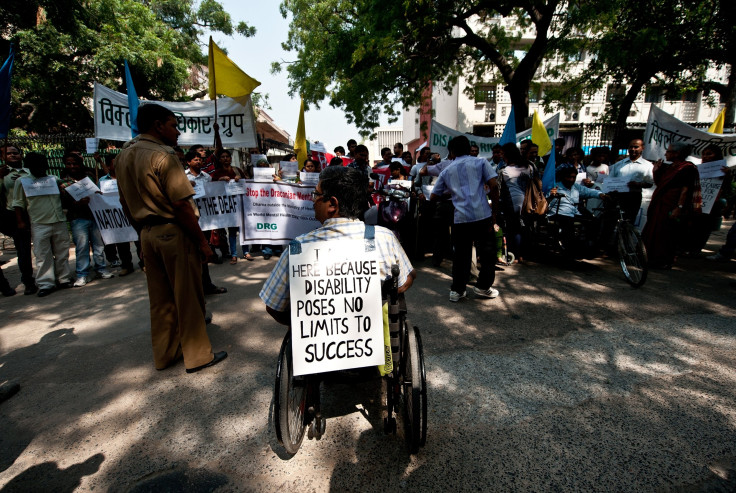World Mental Health Day 2015: WHO Wants To Ensure People With Mental Disorders Are Treated With Dignity And Respect

Article one of the Universal Declaration of Human Rights declares that, “All human beings are born free and equal in dignity and rights” — and yet, the World Health Organization (WHO) finds that this is not the case in the world of mental health. The reality is that people with mental health conditions are still frequently locked up and isolated in institutions, WHO said; many patients are subjected to physical, sexual, and emotional abuse, as well as deprived of the right to make their own decisions. So for this year’s World Mental Health Day, observed annually on Oct. 10, the organization is dedicated to raising awareness of what can be done to ensure mental health patients "live with dignity."
It would be easy to blame it all on the health care system, if only because studies continue to show that mental health care is still not equal to physiological medical care — at least in the eyes of advocates. And while WHO does point out that the health care system can provide more community-based services and better respect people’s autonomy, as well as ensure access to good quality care, there’s work to be done within the actual community, too.
On the community level, WHO said people can better support those with mental health conditions, as well as encourage them to participate more and "acknowledge the value of their contribution." Community members should also respect patients’ autonomy, which allows them to make their own decisions as to where and how they live, in addition to ensuring they have access to employment, education, and housing.
Mental health around the world
Today, nearly 1 in 10 people have a mental health disorder, among which there is a 10-25 year life expectancy reduction, WHO reported. When compared to the general population, the risk of premature death is even higher among patients with schizophrenia, bipolar disorder, and depression. The latter disorder is a leading risk factor for suicide — a major public health concern in its own right, especially among certain populations.
The thing is there's more to it than recognizing mental health is worthy of equal care and respect; there needs to be greater access to those working in the field. According to WHO, only 1 percent of the global workforce is working in mental health, which means nearly half of the world’s population lives in a country where there is less than one psychiatrist per 100,000 people; In India, there are a reported 3 psychiatrists (fewer psychologists) for every 1 million people living with mental disorders. Then there are countries like China where mental illness affects millions of people, but this population remains “kind of invisible.”
What's more is that half of WHO member states have a stand alone mental health law, and two-thirds have a stand-alone policy or plan. These policies are often "not fully in live with international human rights covenants and implementation is weak," WHO recently shared on its Twitter account. Its these inequalities that are largely preventing dignified and respectful care.
'You have to treat them as individuals'
India is actively fighting against its poor mental health care facilities: In 2014, the Ministry of Health and Family Welfare of Guharat and the Centre for Mental Health Law and Policy at the Indian Law Society (supported by WHO) implemented the Quality Rights Project (QRP). The QRP reportedly "goes beyond conventional treatment," in that it advises "service users and caregivers on how to access social grants and giving career guidance."
Additionally, through the project, Indian citizens have access to facilities and peer support groups, like Saathi. In fact, the latter peer group is what finally brought Mohammad Yusuf Mansuri and his family "hope" for his daughter who had been diagnosed with schizophrenia, Shamma.
“I have felt a lot of discrimination in life, but Saathi is a space where people are sharing their difficult experiences,”Mansuri said.. “There has been a shift in the way I think. I find myself taking more time for my daughter and talking about her life, feelings and needs.”
Not only do access and choice benefit the family, but those with the disorders themselves "start to feel better about themselves." Granted, India isn't the only country that recognizes mental health problems and challenges — it's simply a recent example of how projects of this magnitude are starting to benefit patients and their families.
That said, challenges remain — both in India, and everywhere else.
“The hardest part of this project is changing the attitudes of health workers and the community towards people with mental illness,” psychiatrist Dr. Soumitra Pathae, the project coordinator of the QRP and coordinator of the Indian Law Society’s Centre for Mental Health Law and Policy, said in a statement. “To provide holistic care, you must see the person and not just their illness. You have to treat them as individuals with hopes and dreams."



























